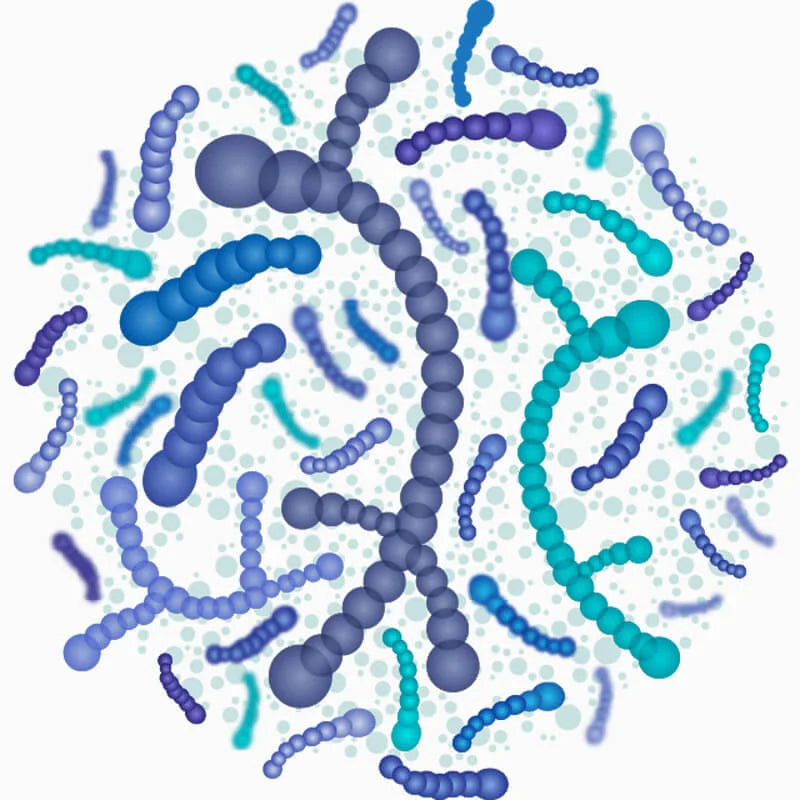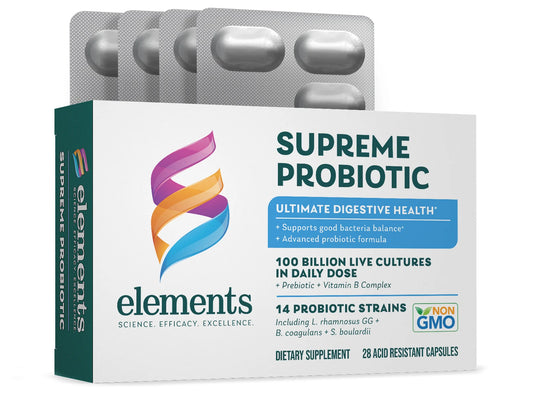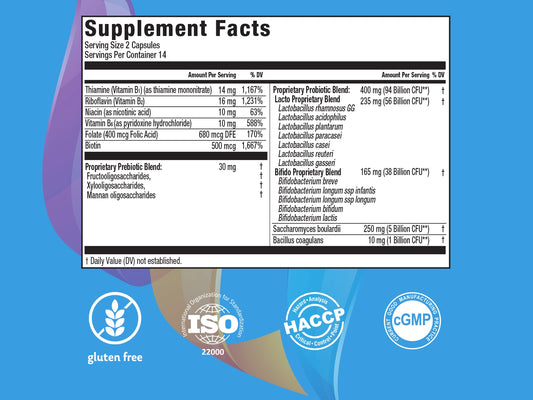Bifidobacteria are y-shaped bacteria, and the first microbes to colonize the human gastrointestinal tract. Researchers have identified more than 50 species of Bifidobacterium, with different functions and health benefits.
Bifidobacteria produce several nutrients and metabolites important for both the body and the normal intestinal ecosystem1.* The availability, diversity, and number of these good bacteria play an important role in maintaining healthy gut microbiota and normal immune homeostasis.
The main beneficial effect of Bifidobacteria is their ability to produce metabolites, like short chain fatty acids and vitamins, needed for normal immune system development2,3.* Bifidobacterium strains of human origin are capable of synthesizing essential vitamins (like K2) and certain B vitamins (like thiamine, riboflavin, pyridoxine, folic acid, biotin, and nicotinic acid). Bifidobacteria also help to maintain digestion of lactose and polysaccharides, supporting intestinal immunity and normal intestinal peristalsis4.*
The Bifidobacteria strains in Supreme Probiotic (B. breve, B. longum ssp infantis, B. longum, B. bifidum and B. lactis) are among the first Bifido species to colonize the intestinal tract, with pronounced benefits for human’s health5.*
- Tomasova L, Grman M, Ondrias K, Ufnal M. Nutr Metab (Lond). 2021;18(1):72. doi:10.1186/s12986-021-00598-5
- Pessione E. Front Cell Infect Microbiol . 2012;2:86. https://www.frontiersin.org/article/10.3389/fcimb.2012.00086.
- O’Callaghan A, van Sinderen D. Front Microbiol . 2016;7:925. https://www.frontiersin.org/article/10.3389/fmicb.2016.00925.
- Dimidi E, Christodoulides S, Scott SM, Whelan K. Adv Nutr. 2017;8(3):484-494. doi:10.3945/an.116.014407
- Nagpal R, Kurakawa T, Tsuji H, et al. Sci Rep. 2017;7(1):10097. doi:10.1038/s41598-017-10711-5




